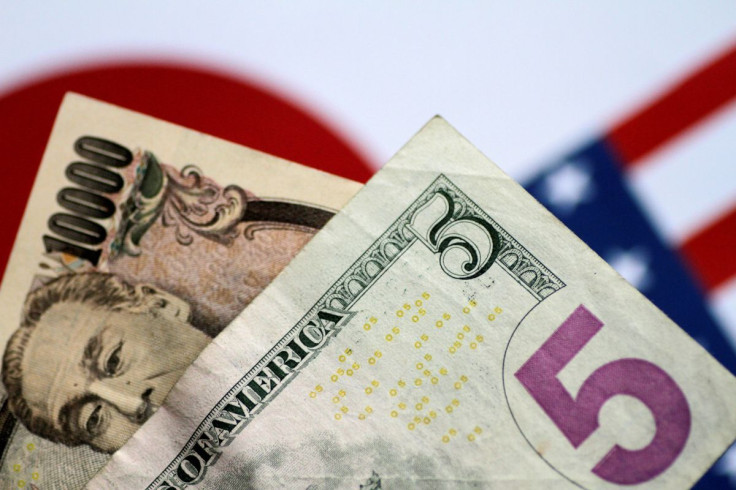Euro Falls Vs Dollar Ahead Of Payrolls, Norwegian Crown Bounces Back

The euro fell on Friday versus a strengthening dollar ahead of a key U.S. jobs report that could help the Federal Reserve decide whether to make an interest rate hike of up to 50 basis points next month.
In the meantime, the euro failed to find any support from surging euro zone inflation, which climbed to 7.5% in March, hitting another record high.
Economists predict Friday's U.S. Labor Department report will show that close to half a million U.S. jobs were added last month, with the unemployment rate ticking lower while wage growth accelerated.
"Rising earnings and the tight jobs market will stiffen policymakers' concerns that a wage-price spiral will add to price pressures moving ahead and bolster expectations that the pace of Fed tightening will pick up in May and perhaps beyond," said Shaun Osborne, chief FX strategist at Scotiabank.
The Federal Open Market Committee (FOMC) will next decide policy at a May 3-4 meeting, with CME Group's FedWatch tool showing a 68.8% chance of a half-percentage-point rate increase. That would follow on from a quarter-point hike on March 16, when the Fed embarked on a new tightening cycle.
The dollar index, which gauges the greenback against six counterparts including the euro, rose 0.16% to 98.472 at 1120 GMT, building on Thursday's 0.50% climb.
The U.S. currency has also benefited from safe-haven flows.
The euro was 0.1% lower versus the greenback at $1.10560, following its sharp retreat the previous day from a one-month high as some hopes for a ceasefire in Ukraine faded. Peace talks were ongoing on Friday.
The single currency was still set for weekly gains.
Versus the Norwegian crown, the euro fell 0.53% to 9.6840 as the commodity-linked currency rebounded from yesterday's sharp declines. The Norwegian crown also rose 0.53% versus the dollar.
The Norwegian crown rebounded on Friday on a combination of a better-than-expected domestic PMI and labour market data as well as an uptick to global oil prices, said Kristoffer Kjaer Lomholt, Head of FX at Danske Bank.
"We regard NOK to be caught in a tug of war between rising global recession risks and rising global commodity prices. As long as the global inflation narrative thrives NOK assets are likely to be in high demand," Lomholt said.
Another commodity-linked currency, the Australian dollar, rose 0.4% to $0.75110.
The Russian rouble has recovered to levels last reached in the days before Russia invaded Ukraine, defying predictions that the war would launch it into freefall.
Cryptocurrency bitcoin slumped 1.1% to $45,268, after touching a one-week low as U.S. and European Union lawmakers moved to tighten their cryptocurrency stances.
On Monday, bitcoin had touched $48,234.00 for the first time since the start of this year.
© Copyright Thomson Reuters 2024. All rights reserved.




















